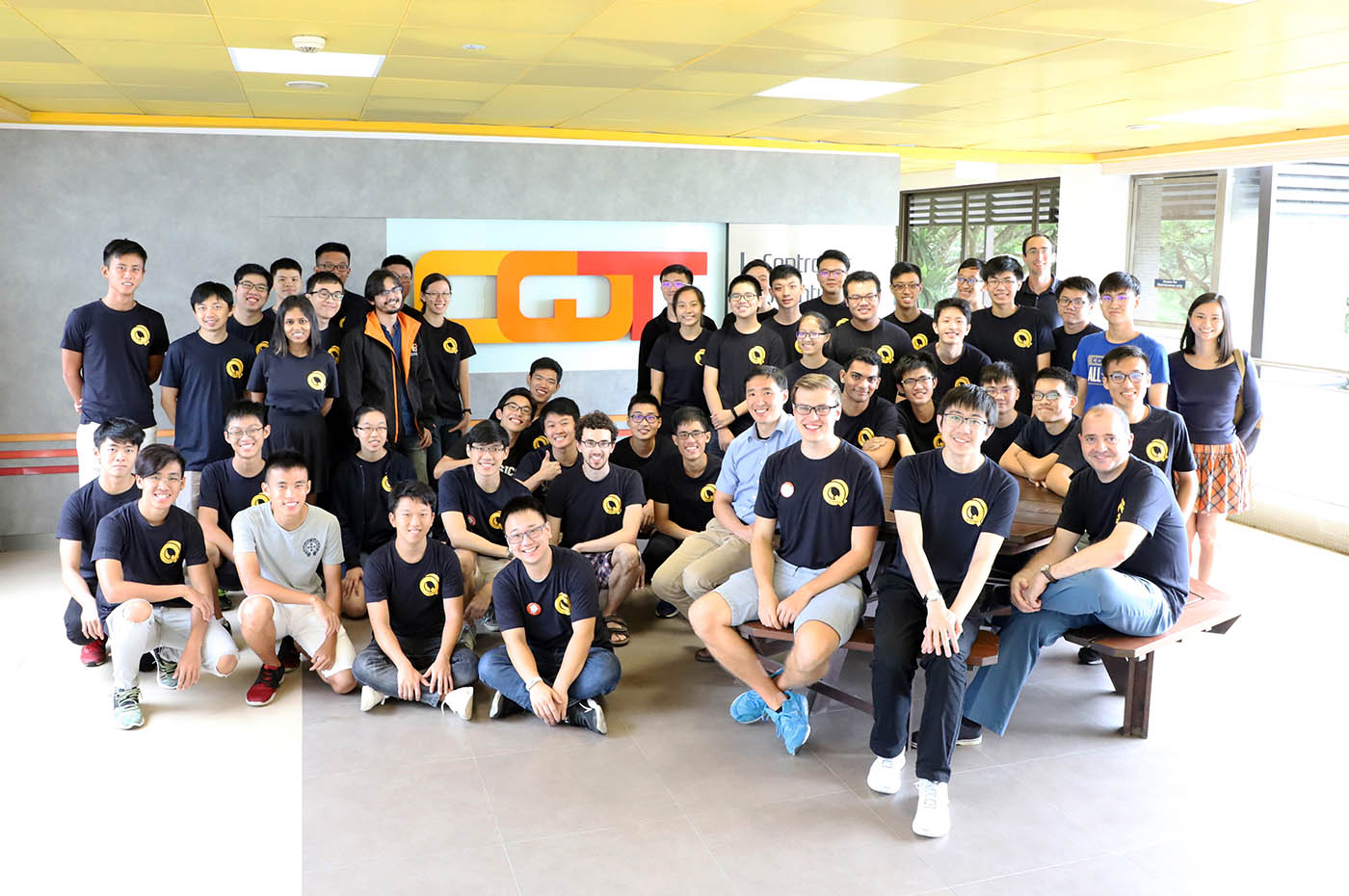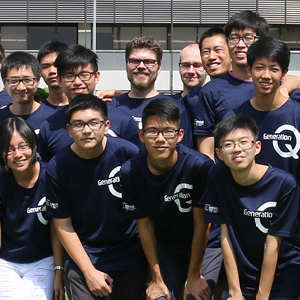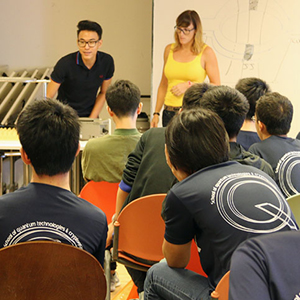Highlights
Leading Junior College students into the quantum world
 CQT welcomed students from 13 schools across Singapore for Q Camp 2018.
CQT welcomed students from 13 schools across Singapore for Q Camp 2018.
CQT's workshop for school students returned for its fourth run this summer, giving more than 40 young scientists an introduction to quantum technologies. Q Camp was held over four days from 28 May, with a programme of lectures, demos, lab-tours and hands-on experiments.
This year's camp was organised by PhD students Hermanni Heimonen, Kishor Bharti, Mathias Seidler and Srijita Kundu with support from the Centre's researchers, students and admin staff.
The content goes beyond the syllabus for students in Junior College, venturing into the maths, physics and engineering that is driving programmes in quantum technologies worldwide.
Students attending Q Camp were aged 16-20 and were nominated through their schools.
For camp leader Hermanni, it was rewarding to see how the students responded. "I liked answering the students' questions. A few stayed behind at the end to say they had learnt a lot of physics they don't have the opportunity to study. I remember being that person - wanting to learn modern physics but finding it's not in the curriculum."
The students had lots of good things to say about the camp, as well as some suggestions to improve it for next year, from slowing down lectures to simplifying notes. In feedback forms at the end of the week, adjectives the students chose to describe the camp included awesome, profound and fun (in a nerd way). The camp "definitely made me enjoy quantum physics more" said one student.
New to this year's camp was a half-day workshop in which students built and tested a quantum key distribution system to make encryption keys for secure communication. In small teams, the students assembled optical and electronic components to do the key transmission, playing the roles traditionally named as Alice and Bob, or try to listen in as Eve the eavesdropper. This involved some coding of microprocessors using prewritten blocks of code.
Students commented that the "Quantum demos were very cool and new as such experiments would not be available outside of this camp" and that "I liked that I managed to learn some other practical skills".
“We wanted the students to feel like experimental physicists for a few hours, so we designed a workshop for them to tinker with electronics, programming, cryptography and optics. I’m happy to see that they enjoy building experiments as much as we do," says Mathias. He developed and led the QKD activity with Adrian Utama, also a CQT PhD student.
Q Camp will return in 2019.
Related Stories
 | Youth make quantum leap at week-long workshop June 14 2016 |
 | CQT's quantum summer camp a hit with college students June 28 2017 |






